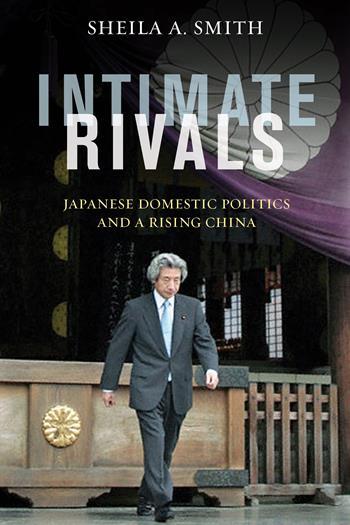Description
Book written by 2006 Abe Fellow Sheila Smith based on her project “China’s Place in Japan’s Foreign Policy Debate: Ideas, Agents and Issues in Remaking Postwar Japan.”
No country feels China’s rise more deeply than Japan. Through intricate case studies of visits by Japanese politicians to the Yasukuni Shrine, conflicts over the boundaries of economic zones in the East China Sea, concerns about food safety, and strategies of island defense, Sheila A. Smith explores the policy issues testing the Japanese government as it tries to navigate its relationship with an advancing China.
Smith finds that Japan’s interactions with China extend far beyond the negotiations between diplomats and include a broad array of social actors intent on influencing the Sino-Japanese relationship. Some of the tensions complicating Japan’s encounters with China, such as those surrounding the Yasukuni Shrine or territorial disputes, have deep roots in the postwar era, and political advocates seeking a stronger Japanese state organize themselves around these causes. Other tensions manifest themselves during the institutional and regulatory reform of maritime boundary and food safety issues.
Smith scrutinizes the role of the Japanese government in coping with contention as China’s influence grows and Japanese citizens demand more protection. Underlying the government’s efforts is Japan’s insecurity about its own capacity for change and its waning status as the leading economy in Asia. For many, China’s rise means Japan’s decline, and Smith suggests how Japan can maintain its regional and global clout as confidence in its postwar diplomatic and security approach diminishes.







